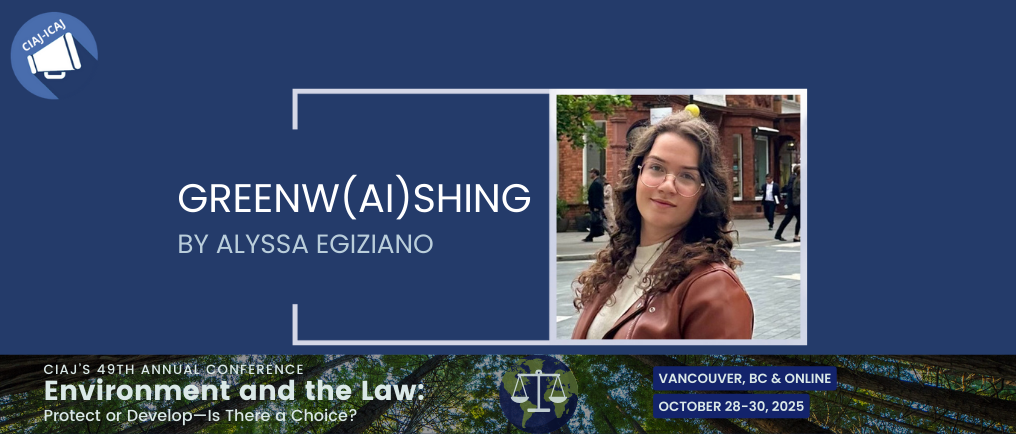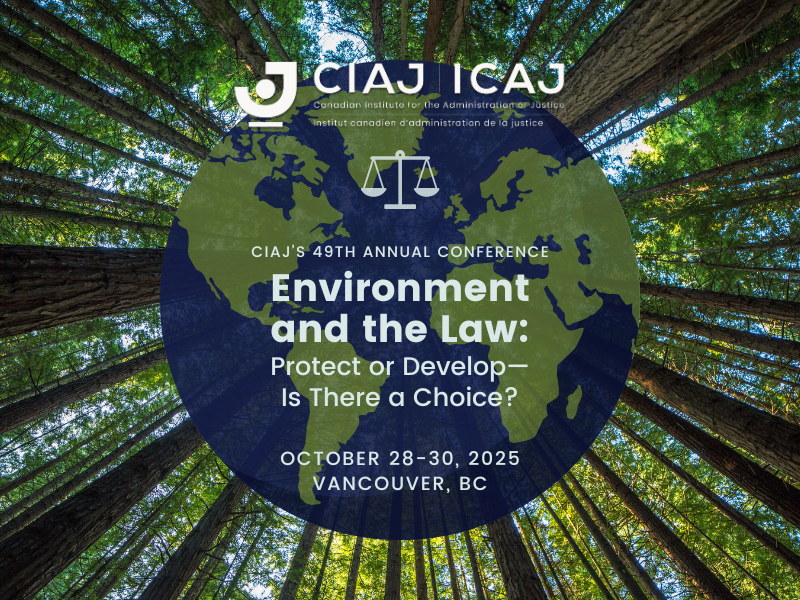Greenw(AI)shing – Alyssa Egiziano

Greenw(AI)shing
Artificial intelligence is a myriad of environmental contradictions. For the good (or bad) it does for the society, AI leaves behind a heavy environmental footprint. However, this work is to highlight how AI can be wielded for good or bad when it comes to greenwashing.
Firstly, what exactly is greenwashing? According to the United Nations[1], greenwashing refers to the practice of misleading the public into believing that a company or organization is making greater environmental efforts than it actually is. Companies can greenwash through promoting false climate solutions such as claiming to become net zero when they have no concrete plan or applying intentionally false or misleading ‘green’ labels to appeal to a larger market for more revenue.
ESG Principles are the Key to Detecting Greenwashing
The implementation of environmental, social and governance (ESG) principles in companies and other entities can help mitigate greenwashing by revealing concrete policies as to how the company pledges to become more environmentally friendly and evaluate the company’s social impact[2]. If companies implement ESG principles, it is often an indicator that they want to be greener.
To become more environmentally conscientious, companies must abide by ESG regulations. These regulations are legally binding rules set by regulatory bodies or the government that companies must comply with. As of date, there is no universally accepted standard for ESG reporting[3]. Since there is no standard for ESG reporting, different countries impose different regulations, which makes compliance challenging and resource intensive[4].
A company’s ESG performance can be assessed primarily from three main sources: company disclosures, contextual company information and information from a wider context such as the news, social media, reports from NGO’s and other research[5].
According to the European Commission[6], 40% of green claims have no supporting evidence and 53% of claims give vague, misleading or unfounded information. The lack of standardization in company’s ESG claims can lead to unintentional greenwashing[7].
Legal Applications in Canada
In Canada, under the Canada Business Corporations Act[8] (“CBCA”). According to the article 122(1) CBCA [9], every director shall act honestly and in good faith for the best interests of the corporation.
Specifically for article 122 (1) (b), to exercise with care and diligence is the duty of a director to have transparency towards their actions and a duty to inform their shareholders and the public. In such, by exercising with care and diligence, companies will reduce greenwashing because if they do not comply, the directors will face monetary sanctions as seen in article 122 (2) CBCA[10].
As an example, Keurig led Canadian buyers believe that they can recycle their single-use plastic coffee pods[11] and be more environmentally friendly. However, most of the country’s provinces’ recycling plants don’t accept those coffee pods, for the exception of Québec and British Columbia[12]. As a result, Keurig was fined $3 million to change the misleading claims on their packaging. If companies do not exercise with care and diligence, as per article 122 (2) CBCA, they will be sanctioned for greenwashing.
The Use of AI to Detect Greenwashing
In such cases, the use of AI can help mitigate the effects of greenwashing. Drawing from the work of Palak Gupta, an ESCP Business School graduate, AI, precisely Large Language Models (LLMs) can detect greenwashing and hold companies accountable for promoting misleading claims[13]. The model can detect internal indicators, such as vague wording and a lack of using measurable targets[14] and compares the findings with third party sources, such as NGO reports and news reports[15]. Once the company’s ESG disclosures are computed, the LLM assigns the company a Greenwashing Likelihood Score[16] based on a scoring model. Thus, AI can effectively help reduce greenwashing because companies would be called out for their purposely misleading actions.
Similarly, AI-driven ESG assessments is incorporated using natural language processing (NLP) which enables computers to understand text and speech[17]. Many companies and organizations are implementing machine learning technologies to disclose data analysis, ESG investment and ESG information acquisition[18]. The data that is assessed can be used as a basis for drawing completer and more reliable internal and external ESG sustainability reporting in companies[19]. In such, AI and machine learning can help to provide more reliable ESG data and can reduce the potential of greenwashing by companies through more transparent disclosure.
Deepfakes Can Aid Greenwashing
On the other hand, AI can also be wielded for negative usage and can exacerbate greenwashing. A negative impact of AI is the creation of Deepfakes. Deepfakes are media manipulations where images, voices, videos or texts are digitally altered or generated by AI[20]. Moreover, AI-generated texts, like articles or blogs can be posted online and circulate among real content[21].
The act of circulating fake information is called disinformation, where it is deliberately intended to mislead people into thinking false information[22]. The internet, and social media is a petri dish for disinformation. It is starting to erode public trust, and disinformation is weaponized to make people believe what they want to believe, and they do not trust officials who say otherwise. We have seen disinformation circulate over elections, the Covid-19 pandemic, and now we are seeing it for the climate crisis.
Websites like Dall-E and other AI generated video website creates original and realistic enough images[23] and videos. If used for fun, users can generate pictures in seconds, such as a monkey playing soccer on Saturn, for example. However, it can also be wielded to spread disinformation.
In March 2023, a right-wing think tank used an AI generated image from Dall-E of a beached whale to “show” that offshore wind turbines would be harmful for whales[24]. Upon closer research, that think tank is notoriously known to be against the energy transition to renewable energy[25]. The use of exploiting AI to further their point, is easily accessible and very damaging. The use of deepfakes can discredit the climate action and foster mistrust in public officials.
Another way AI can facilitate greenwashing, is by asking Generative AI to produce vague prompts about being environmentally friendly. I asked ChatGPT to create a prompt and it came up with:
My prompt in ChatGPT: I’m creating a clothing company, and I want to be environmentally friendly and promote it on my website. Can you make me ready to use prompts?
The Everyday Organic Tee — Comfort meets conscience. Made from 100% certified organic cotton, this tee uses 91% less water than conventional cotton and is dyed with non-toxic, low-impact colors. Its classic fit and soft feel make it a wardrobe essential you’ll reach for again and again — because sustainability should be your everyday choice[26].
Examples like this perpetuate greenwashing because there is no substantive evidence that I used 100% certified organic cotton. Nor do I own a clothing business, but it makes it seem very convincing and quite misleading.
As time will progress, deepfakes will become more convincing and harder to discern between fake videos and real, evidence-based videos. Governments will need to implement policies, directives and laws to be able to characterize and distinguish malicious AI content from positive content[27]. AI, in comparison to implementing new legislation, moves at the speed of sound. How can governments keep up and make their policies relevant? Collaboration amongst allies, academics, partner governments and industry experts are essential[28].
Conclusion
Artificial Intelligence can be a very helpful tool to detect greenwashing and call out companies for misleading the public. As much as AI could do good, it can conversely do more negative damage to society if it used to help spread misleading information about greenwashing and create disinformation about climate topics. In a world where public trust in the truth is rapidly declining, should the user of GenAI fan the flames of disinformation or add fuel to the fire?
[1] Greenwashing – The Deceptive Tactics Behind Environmental Claims, online: United Nations: Climate Action <https://www.un.org/en/climatechange/science/climate-issues/greenwashing>
[2] Prophix, A Guide to 2024 ESG Regulations in Canada & Across the Globe (March 6 2024), online: Prophix <https://www.prophix.com/blog/a-guide-to-esg-regulations-in-canada-across-the-globe/>
[3] Ibid
[4] The 5 Main Challenges of ESG Reporting and Best Practices (February 25 2025), online: Eco Active Tech <https://ecoactivetech.com/the-5-main-challenges-of-esg-reporting-and-best-practices/>
[5] A question of trust: How AI is Addressing Greenwashing Concerns (July 11 2024), online: CFA Institute <https://www.cfainstitute.org/insights/articles/how-ai-combats-greenwashing>
[6] European Commission, Green Claims, Online: Environment, European Commission <https://environment.ec.europa.eu/topics/circular-economy/green-claims_en>
[7] Supra, note 7
[8] Canada Business Corporations Act, R.S.C.1985, c. C-44 (hereafter known as ‘CBCA’)
[9] 122 (1) Every director and officer of a corporation in exercising their powers and discharging their duties shall
(a) act honestly and in good faith with a view to the best interests of the corporation; and
(b) exercise the care, diligence and skill that a reasonably prudent person would exercise in comparable circumstances.
[10] CBCA, article 122 (2):
Duty to comply
(2) Every director and officer of a corporation shall comply with this Act, the regulations, articles, by-laws and any unanimous shareholder agreement.
[11] Akepa, Greenwashing: 19 Recent Stand-out Examples (January 23 2025), online: The Sustainable Agency <https://thesustainableagency.com/blog/greenwashing-examples/>
[12] Ibid
[13] Palak Gupta, Greenwashing in Corporate Sustainability: How AI is Exposing False ESG Claims (April 3 2025), online: The Choice <https://thechoice.escp.eu/tomorrow-choices/greenwashing-in-corporate-sustainability-how-ai-is-exposing-false-esg-claims/>
[14] Ibid
[15] Ibid
[16] Ibid
[17] Supra, note 7
[18] Dongyang Zhang, “The Pathway to Curb Greenwashing in Sustainable Growth: The Role of Artificial Intelligence” (2024) 133 Energy Economics 107562 at 4
[19] Ibid, at 4
[20] Canada, Canadian Security Intelligence Service, Deepfakes: A Real Threat to a Canadian Future, (Ottawa: Communication Group, 2023) <https://www.canada.ca/en/security-intelligence-service/corporate/publications/the-evolution-of-disinformation-a-deepfake-future/deepfakes-a-real-threat-to-a-canadian-future.html>
[21] Ibid
[22] Ibid
[23] Dall-E, online: OpenAI <https://openai.com/index/dall-e-2/>
[24] Goodness Esom, 3 ways Regulation can Prevent Deepfake Greenwashing (July 18 2025), online: WEForum <https://www.weforum.org/stories/2025/07/deepfake-greenwashing-regulations/#:~:text=Generative%20artificial%20intelligence%20(GenAI)%20can,the%20threat%20of%20deepfake%20greenwashing>
[25] Shanti Escalante-De Mattei, Energy Industry Uses Whale Activists to aid Anti-Wind Farm Strategy, Experts Say (July 17 2023), online: The Guardian <https://www.theguardian.com/environment/2023/jul/17/anti-wind-farm-whale-defenders-fossil-fuel-industry>
[26] ChatGPT (Aug 12 2025), online : OpenAI <https://chatgpt.com/c/689b54b7-367c-832c-bcda-4fa0b3a6fde3>
[27] Supra, note 7
[28] Ibid


